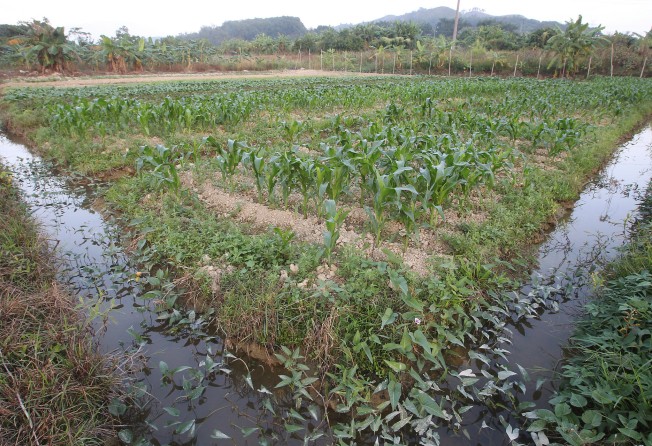Growing concern over lack of vision for agriculture
City ignores food security at its peril, experts say as government plans review of policy

How much of Hong Kong's food could be produced locally? That's the key question for the government's review of its agriculture policy, farming researchers say.
The group of researchers believe agricultural policy is "non-existent" and warn that the city lags behind mainland counterparts in setting targets for food security - adding that it could pay a heavy price if problems emerge with food supply and quality.
The group's comments came a week after Chief Executive Leung Chun-ying pledged to review agriculture policy to promote sustainable development and enhance productivity using green technology and at a time when developers and officials are eying disused agricultural land for new homes.
Group member Dr Cynthia Yuen Siu-sin, who holds a PhD in agriculture from Beijing's Renmin University, said what the government needed was to set a target for food self-sustainability.
She said all mainland cities had to set such a target: typically requiring about 30 per cent of staples such as rice and vegetables to be sourced locally. Mainland officials are judged on whether they have met the targets as part of their performance assessment.
Without similar targets, Hong Kong officials could not decide how much agricultural land should be preserved, Yuen said.
"On the mainland, food supply is a national security issue" she said. "But in Hong Kong, we turn a blind eye to it."
Growing affluence on the mainland meant competition for high-quality food produce which would once have gone to Hong Kong, she said.
The city's 294 hectares of agricultural land supply a meagre 2.3 per cent of local vegetable consumption, while 3,800 hectares of land lies idle in the New Territories. While a handful of chicken and pig farms operate locally, most meat comes from the mainland and overseas.
Edward Yiu Chung-yim, an associate professor of geography at Chinese University, said the government should offer concessions and use the tax system to encourage landowners - including big developers which have stockpiled New Territories sites - to release arable land.
"The [land is] zoned for agriculture. These measures could help better utilise idle land resources and meet the original intention of their zoning," he said.
Yuen Yi-tin, of the Ma Po Po Community Farm in Fanling, could not see any substance to Leung's review pledge and believed he may have misunderstood the big picture. "Leung tried to fool us with what he called modern agriculture technology. Who will invest in growing strawberries in old industrial buildings if one can pocket tens of millions of dollars in the booming property market?"
A spokesman for the Agriculture, Fisheries and Conservation Department said it would consult the public on the policy review later this year.